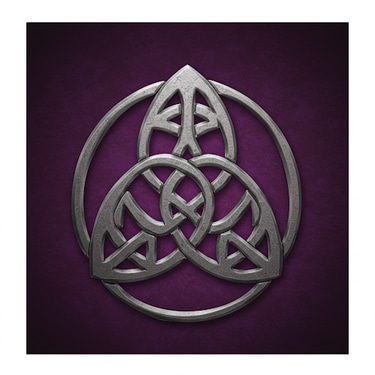The Mystic and the Magistrate: When Christ Walks Through Politics
Deborah Colleen Rose
6/17/20253 min read
Two Kingdoms, One Heart
In the mystic path, we learn to see with the inner eye—to hear the still, small voice beneath the noise of the world. But what happens when that noise becomes a battle cry? When the chaos of political power knocks at the temple door?
As followers of the Christ-Who-Walks-Between-Worlds, we are not called to flee the world, nor to idolize it. We are called to hold tension. To walk barefoot across the threshold where the sacred and the secular collide.
Christ does not campaign. He communes. He does not legislate. He liberates. But if He lives in us, He may still speak through how we engage, resist, and transform the systems of men.
1. Christ’s Politics Were Not of This World—But They Were For This World
Jesus spoke more about the Kingdom of God than any other subject—and yet that Kingdom is not a government, not a party, not a policy. It is a way of being. A vibration. A consciousness. It lives inside the heart, and it disrupts the status quo by simply existing.
He did not petition Caesar. He did not endorse Herod. He also did not run from confrontation. His presence was protest. His silence was subversion. His crucifixion was the system’s attempt to cancel the Divine in public.
The mystic recognizes: Christ wasn’t apolitical. He was trans-political. He walked through politics the way He walked on water—not bound by it, yet unafraid to tread its depths.
2. Beware the Blending of Altar and Throne
In every age, religion has tried to crown itself. Wrap the cross in a flag. Turn worship into nationalism. The mystic knows: this is spiritual adultery.
Mystics resist empire because we follow a homeless rabbi who kept company with lepers, tax agents, zealots, and sex workers—and called all of them kin. The Kingdom of God is not built with ballots, but with broken bread and washed feet.
We are not here to make the world more “Christian.” We are here to embody Christ in a way that reveals the divine already present within the world—and often, outside the places we expected to find Him.
3. Vote If You Must—But Fast First
Political engagement is not forbidden to mystics. But it must pass through the fire of contemplation before it becomes action. Don’t vote out of fear. Don’t vote from tribal loyalty. Don’t vote because you were told you must.
Pray. Fast. Listen.
Ask: “Who among the least of these will be affected by this decision?” Then ask: “Is this the way of the Lamb or the way of the sword?” One way dominates. The other way descends.
Mystics vote from union, not division. From soul, not slogan.
4. Christ Would Offend Every Political Party—Because He Refuses to Be Owned
He’d heal a refugee child at the border and rebuke the priest who hoards wealth in His name. He’d defend a woman caught in adultery and call the men in suits whitewashed tombs. He would not run for president—He’d go to the margins and resurrect those the powerful forgot.
In modern terms? He’d be too progressive for the pulpit, too prophetic for the left, and too mystical for the right.
Mystics don’t ask, “Which side is God on?” We ask, “Where is Christ bleeding, and how can I bind the wound?”
5. Loving Enemies: The Mystic’s Political Resistance
The most radical political act is not protest—it is presence. Not argument—it is love. The mystic lives in paradox: we disagree without division. We resist without hatred. We serve without needing control.
Christ said, “Love your enemies.” Not as a platitude. As a path.
This is not passive. It is revolutionary. The mystic knows that loving the unlovable dismantles the spirit of empire faster than legislation ever could. It’s the unseen leaven in the bread that raises the whole loaf.
Conclusion: Render to Caesar—but Belong to God
The mystical life is not an escape. It is an immersion. We live in this world but are not defined by it. We touch politics without letting it possess us.
We render to Caesar what belongs to him: taxes, votes, participation when appropriate. But we render to God what Caesar can never claim: our allegiance, our identity, our hope.
The Mystic path is not neutral. It is rooted. Rooted in the Kingdom that has no borders, no ballots, no bombs. A Kingdom of light, breath, stillness, and fire.
And when we walk into voting booths, board rooms, protests, or even church halls, may we carry that Kingdom like a candle into the storm.
Join us in spiritual growth and connection. More to come.
Community
© 2025. All rights reserved.
